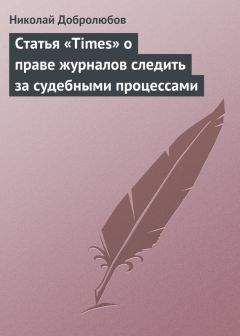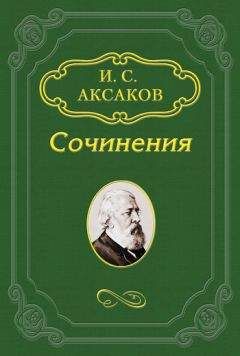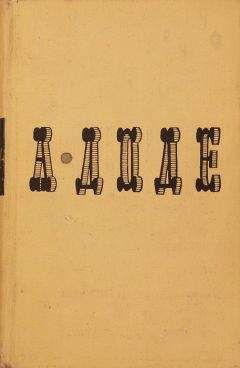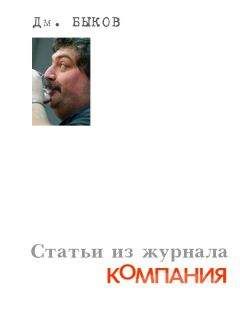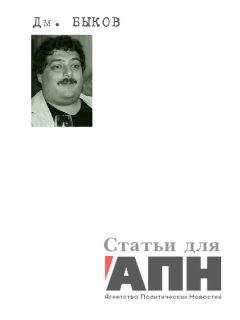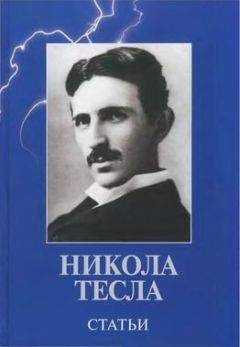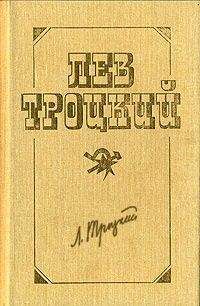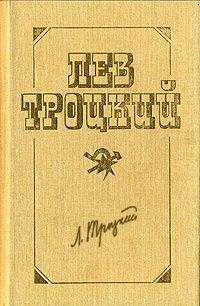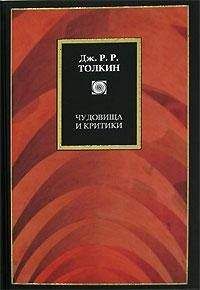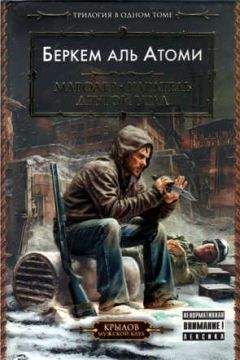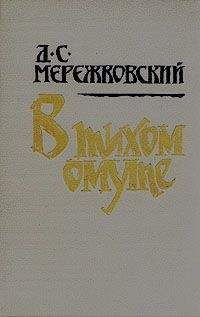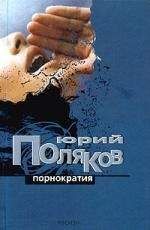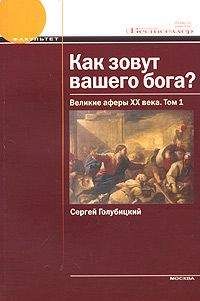Алексей Минченков - Glimpses of Britain. Reader

Все авторские права соблюдены. Напишите нам, если Вы не согласны.
Описание книги "Glimpses of Britain. Reader"
Описание и краткое содержание "Glimpses of Britain. Reader" читать бесплатно онлайн.
Хрестоматия содержит подборку статей из современных газет и журналов, иллюстрирующих многие темы, рассматриваемые в основных главах пособия Glimpses of Britain. Статьи расположены в произвольном порядке, они не адаптировались и не сокращались, был полностью сохранен авторский стиль и пунктуация. Таким образом, статьи представляют разный уровень сложности, в зависимости от индивидуального стиля автора.
by Laura Clark
Daily Mail, August 5, 2004
The past seems to be something of a closed book to many young Britons. William the Conqueror, for example, may have changed the course of our history in 1066, but he remains largely a mystery man.
In a survey, almost half of 16 to 24-year-olds could not identify him as the victor of the Battle of Hastings.
Amazingly, more than one in five believed it was Alexander the Great and 13 per cent said it was Napoleon.
The BBC poll, published today, also reveals that less than half of the young Britons knew Sir Francis Drake fought in the English fleet against the Spanish Armada. One in five believed the hero of England’s victory in 1588 was Christopher Columbus. And the same number thought it was either Horatio Hornblower or Gandalf – both fictional characters.
The findings left education campaigners aghast at young people’s lack of knowledge about their nation’s past.
Ignorance, however, was not entirely confined to the younger age groups. The survey of 1,000 Britons from 16-year-olds to pensioners uncovered glaring gaps in many people’s knowledge of key historical events that shaped our history.
They may have given us our calendar, our roads, the first modern toilet and contributed to our language, but one in five Britons were unaware the Romans ever came here at all.
One in ten 16 to 24-year-olds actually thought Britain was conquered by Germany.
And despite this year’s widespread coverage of the 60th anniversary of the D-Day landings, a third of respondents failed to answer a basic question about the Second World War.
Just 69 per cent knew the Battle of Britain took place during the 1939–45 conflict, with the figure dropping to 51 per cent among 16 to 24-year-olds.
A fifth of that age group believed it occurred during the First World War, while 12 per cent said it was fought 600 years earlier, during the Hundred Years War involving England and France.
Just half of those polled knew the name of the battle celebrated by Orangemen in Northern Ireland every July 12.
Only 18 per cent of 16 to 24-year-olds correctly identified it as the Battle of the Boyne, where Catholic King James II’s troops were defeated by Protestant William III in1690.
A quarter believed the Orangemen were celebrating the battle of “Stamford Bridge” while one in ten answered the Battle of the Bulge.
An astonishing 15 per cent thought the answer was “Helmsdeep” – the fictional battle that marked the climax of The Two Towers, the second novel in Tolkien’s Lord of the Rings trilogy.
The figures, released to mark the start tomorrow of BBC2’s Battlefield Britain series on landmark conflicts, prompted calls for history to be made more prominent in the school curriculum.
Nick Seaton, chairman of the Campaign for Real Education, said: “The survey clearly shows that our state education system has got a lot to answer for.
A grounding in national history is essential for all young people in order to understand the present. This is extremely shocking. Last month, education watchdog Ofsted said secondary schools spent too little time teaching teenagers about the British Empire and too much on Nazi Germany.
Time spent on the Empire as a topic could amount to one lesson a year for 11 to 14-year-olds and almost nothing for GCSE pupils.”
Peter Snow, who presents Battlefield Britain with his son Dan, said: “It’s at once a shock and a challenge that so many people can be so wrong about some of the key moments in Britain’s past.”
How I see it
by Robert Hardman
Daily Mail, August 4, 2004
They all thought it was going to be a bit of a lark on the other side of the Channel. No one expected to see their best mate liquidised by a shell or choke to death on mud and gas in a rat-infested quagmire. As far as Fred Lloyd and his pals were concerned, they were just going to give the Kaiser a bloody nose.
Back then, it was simple. Germany had rejected Britain’s ultimatum to uninvade Belgium and so mighty Britain was at war with silly Germany. It would all be over by Christmas, of course.
Today, Mr Lloyd and an extraordinary little band will bring Whitehall to a halt as they gather to recall how horribly wrong the world got it that fateful day – August 4, 1914.
It seems incredible that there is anyone alive with a first-hand story of World War I. But Britain still boasts 23 veterans of that monstrous conflict.
And at 11 this morning, four of George V’s men will be at the Cenotaph to mark the day the world changed.
“We never thought it would last long. No one thought of it as the Great War then. It was just going to be a skirmish,” says Mr Lloyd, 106, still shuddering at the naivety of it all. “All those boys. Thousands of young boys dying in an hour. It’s just so stupid.”
It certainly did not seem stupid to 16-year-old Fred Lloyd, then a gardener on a country estate at Uckfield, Sussex. Nor did it seem stupid to William Stone, then a 14-year-old farmhand at Sherford Down Farm in Devon.
“I was working with the cows at the time. The postman came up and told us: ‘We are at war with Germany,’ ” says Mr Stone, now 103. “We were all anxious to join as soon as we could.”
He was too young to enlist at the time but remembers that one of the other lads on the farm went straight off to the Royal Marines and thence to a watery grave off the Orkneys in HMS Hampshire, alongside Lord Kitchener and 641 other men.
Mr Stone, who went on to serve in the Royal Navy in both World Wars, is due to give a reading shortly after Big Ben chimes 11am. Alongside him will be Henry Allingham, Britain’s oldest war veteran. He turned 108 two months ago, on the very day that those young pups, the Normandy veterans, were marking the 60th anniversary of D-Day.
He was yet another excited young man on August 4, 1914. Already obsessed with motorbikes, he saw the war as an opportunity to ride a racier model and immediately tried to enlist as a dispatch rider at a London recruiting office.
But the Royal Engineers had enough riders already and Mr Allingham’s widowed mother was unwell. So he remained at home until her death the following year when he promptly entered the Royal Naval Air Service.
The fourth member of this morning’s gallant quartet will be Jack Oborne, who was a 14-year-old apprentice carpenter on the day that war broke out.
It would be another three years before he put on a uniform, although he would still have more than enough time to experience the very worst that the Western Front had to offer.
This morning may be the anniversary of the day it all began. But August 4, 1914, will not be uppermost in the minds of these men. As a bugler sounds the Last Post, they will be remembering what happened next.
Fred Lloyd, the youngest of 16 orphaned children, wanted to follow his three older brothers into the Army but was turned down by the local Sussex Regiment for being too short. He was, though, allowed to join the Royal Artillery to look after the horses which were still vital to trench warfare. Despite an attack of meningitis which nearly killed him, Private Lloyd made it out to northern France, where it was his task to take fresh horses up to the line and bring the sick ones back. To this day, he is baffled by the number which lost their sight. “Hundreds of horses went blind in that war, but I don’t think anyone ever worked out why that was.”
He remains very reluctant to discuss the sights he saw, so much so that he has never even shared them with his family. “He opened up to me once about it, telling me how everything from thoroughbreds to old nags were just blown to pieces. But it made him very distressed,” says Dee Johnson, who looks after Mr Lloyd at the Thornbury Residential Home in East Sussex.
Of his three brothers, one was killed at Arras, one died at the Somme and the third returned home with shrapnel in his head. Mr Lloyd still regards himself as one of the lucky ones.
So, too, does Mr Stone. “Every day, I think what a bloody lucky man I am to be here,” he tells me from the Oxfordshire home where he still lives alone, doing his daily exercises with his chest-expanders and handgrips: “I’ve got such a strong handshake, people won’t shake hands with me.”
By the time he joined the Royal Navy, the war was nearly over, although he still remembers seeing the German fleet scuttled at Scapa Flow. But if his youth was an asset in the First World War, it did him no favours when the Second broke out.
Just as he should have been retiring, he was sent back to sea in 1940. He made five desperate trips to Dunkirk, watching his sister ship and her cargo of fleeing soldiers blown to pieces. Chief Petty Officer Stone was mentioned in dispatches after his ship was torpedoed off Sicily in 1943 and endured the horrors of the Russian convoys.
And still, he cannot believe his good fortune. “I survived the first war, then the influenza which killed even more people, then the second war. That’s why I trust in God.”
You won’t hear much grumbling from any of this lot. Whatever subsequent hardships life threw at them, they still see themselves as the Lottery winners of their generation.
“I reckon I’ve had this guardian angel sitting on my shoulder,” says Henry Allingham as he recalls his Great War, one which took him to the three most infamous battlegrounds of the lot.
As an air mechanic in HMS Kingfisher, he witnessed the great Battle of Jutland which effectively neutralised the German fleet – not that he sensed its significance at the time. “We didn’t do much. We just watched the shells ricochet.”
The First Mechanic and his squadron were then moved ashore to the Western Front – Ypres and the Somme – where one of his most vivid memories is of nearly drowning in a huge, festering shellhole filled with human remains, rats and mud.
“It was night. I couldn’t see and the sides were crumbling. I thought I’d drown, but I put my foot the right way and managed to drag myself out. But I couldn’t move until dawn because there might be booby-traps.”
In his darker moments, he can still see his pilots turn to “jelly” in the wreckage of their burning planes just yards in front of his position.
Nine decades on, the memory still brings back the tears. He prefers to dwell on the few happier moments of the war. “There was great camaraderie. You knew you could bank on the other bloke.”
And he is as modest as the next man. “It was those poor devils in the trenches, marching 20 miles with all their kit on a bowl of soup, it was them who won the war.”
One of those “poor devils” was Private Jack Oborne of the 52nd Devonshire Light Infantry, although, like all the rest, he sees himself as lucky. Certainly, if it wasn’t for the pocket watch which his father gave him in 1917, he wouldn’t be at the Cenotaph this morning.
He had already taken one bullet in the leg at Passchendaele – otherwise known as the Third Battle of Ypres – when a German bullet hit him in the chest. It hit the watch instead of Mr Oborne.
“He has never talked about it much,” says his son, David Oborne, 77. “If you’ve seen a shell throw up bodies blown up by a previous shell, you just try to block it out. I’ve tried to get things out of him but I can’t.”
All of these men – two of whom span three centuries – are still haunted by the events of 90 years ago. We may not share their ghosts. But we should never ignore their memories.
Why I’ll keep on riding to the rescue of Blenheim
By John Spencer Churchill,
11th Duke of Marlborough
The Mail on Sunday, August 8, 2004
Running a stately home today is very much a business – that’s the way it has to be. It has to be well thought-out, well organised and well run. It’s something we have developed over a period of time and will continue to do so.
The first paying visitors were admitted to the house in 1950. In those days, we opened only four days a week. Then I managed to persuade my father to open for five days a week. When I took over in 1972 I realised we had to be open seven days a week.
Recently we increased the number of days that we’re open by extending the season – this improves the bottom line. We have to open more days because the expenses are going up all the time. This year, for example, we’re staying open until December 12 – and will re-open next year in February.
It worries me slightly that we’re opening this long because the only way you can keep a house in good tip-top order is to close it down for a certain number of weeks so you can give it a proper spring clean. Maintenance is crucial because the future of the house is all-important.
Now it is in quite good order, something I can say with pride and satisfaction. But there is a lot of stone work that needs replacing and we also have to replace the six statues that used to be on the roof. We haven’t been able to do a lot of restoration over the past four years because all the monies have been drawn to rewiring, costing hundreds of thousands of pounds. If John Churchill were to return here today I think he would be delighted to see that the place is still in reasonably good nick. The other thing is that one has constantly got to think of other means of attracting outside events. It’s no use sitting back and thinking you can carry on the business in the same way that it was done 25 years ago. There’s a lot of outside competition now.
The one thing that has really hit the stately homes business quite badly is Sunday opening. There has been a huge change to the way of life in this country on Sundays. Fifteen to 20 years ago there was very little that people could do on Sundays except visit a stately home. The shops were shut, no race meetings took place. That’s all changed.
So we have to keep innovating. This year we have restored the Secret Garden, a treasure that has remained hidden for more than 30 years.
The garden was conceived by my father, the 10th Duke, and work began in 1960 on creating a romantic and secluded haven which broke away from the formal nature of traditional Victorian gardens.
My father was a keen gardener and planted unusual species of trees, shrubs and flowers to create a Four Seasons garden comprising winding paths, soothing water features, bridges, fountains, ponds and streams.
Over the past 30 years, the garden has grown wild and remained inaccessible to all but the most intrepid of explorers. However, a team of dedicated gardeners set about restoring it to its former glory.
We are constantly having to come up with things to make people aware that there is more to Blenheim than just the house.
At our music festival this year, for example, we had Barry Manilow performing on the final night. I’m a great Barry Manilow fan – he’s performed here before and I know him quite well.
You have to cater to all sections of the community, especially children, because they quite often tell the parents what they’ll be doing at weekends.
If anybody is interested in history or heritage then automatically they’ll want to come to Blenheim. Here, you will find not just the history of our family but to some extent an insight into the history of Britain since the 1700s.
Our special exhibition on the Battle of Blenheim explains just how important that victory was. If the French had won they would have dominated the world – the Americans might well have ended up speaking French.
Подписывайтесь на наши страницы в социальных сетях.
Будьте в курсе последних книжных новинок, комментируйте, обсуждайте. Мы ждём Вас!
Похожие книги на "Glimpses of Britain. Reader"
Книги похожие на "Glimpses of Britain. Reader" читать онлайн или скачать бесплатно полные версии.
Мы рекомендуем Вам зарегистрироваться либо войти на сайт под своим именем.
Отзывы о "Алексей Минченков - Glimpses of Britain. Reader"
Отзывы читателей о книге "Glimpses of Britain. Reader", комментарии и мнения людей о произведении.






